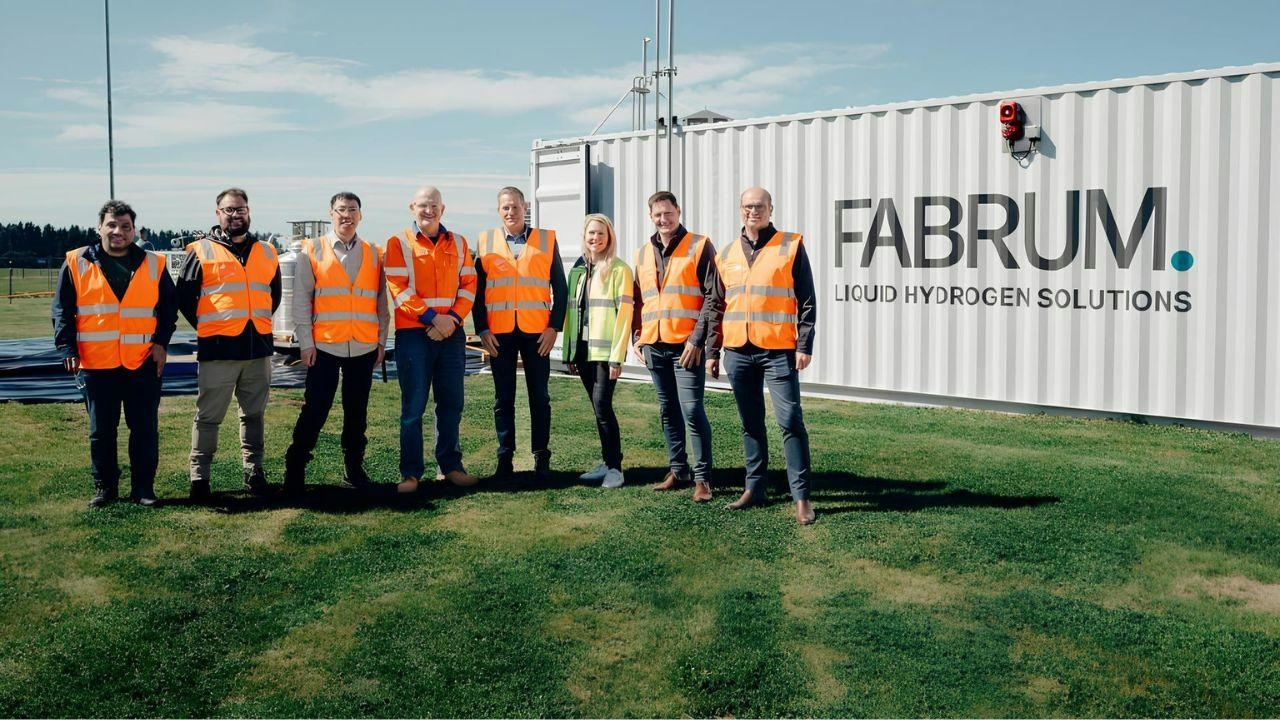AeroGenie — Il tuo copilota intelligente.
Tendenze
Categories
Australia and New Zealand Launch Hydrogen Refueling at Airport to Advance Sustainable Aviation

Australia and New Zealand Launch Hydrogen Refueling at Airport to Advance Sustainable Aviation
For the first time in Oceania, liquid hydrogen has been used to refuel aircraft at an international airport, marking a pivotal advancement in sustainable aviation. On October 28, 2025, Australia and New Zealand jointly conducted the region’s inaugural hydrogen refueling of experimental aircraft at Christchurch International Airport in New Zealand. This milestone involved pioneering companies Fabrum, AMSL Aero, and Stralis Aircraft, and represents a significant step forward in the aviation sector’s transition toward cleaner energy sources.
A Milestone for Hydrogen in Aviation
The refueling operation featured test aircraft specifically adapted to operate with hydrogen fuel cells. Stralis Aircraft deployed a modified Beechcraft Bonanza A36, while AMSL Aero contributed its own experimental model. Fabrum, a specialist in cryogenic solutions, supplied the liquid hydrogen necessary for the operation. This achievement demonstrates the growing feasibility of integrating hydrogen technology into the routine operations of commercial airports.
Hydrogen is recognized for its high energy density and the fact that it produces zero carbon emissions during flight, positioning it as a promising alternative to conventional aviation fuels. However, its adoption requires the development of specialized infrastructure, rigorous safety protocols, and advanced storage and distribution systems. The successful refueling at Christchurch underscores the technical capabilities and commitment to sustainable innovation within the region.
Strategic Trans-Tasman Collaboration
Although the demonstration took place in New Zealand, Australia’s involvement was integral to the project’s success. The participating companies are based in both countries, and the initiative received technical and institutional support from both governments. This cross-border collaboration highlights Oceania’s leadership in aviation decarbonization and technological advancement.
Australia has been investing heavily in alternative fuels and hydrogen infrastructure, while New Zealand is noted for its progressive environmental policies. Together, they are constructing a model for sustainable development that could serve as an example for other regions. The initiative aligns with both nations’ climate commitments to achieve carbon neutrality by 2050, addressing aviation’s contribution to approximately 2.5% of global emissions.
Industry Impact and Global Context
This development arrives amid growing global momentum toward sustainable aviation solutions. The market for sustainable aviation fuel (SAF) is projected to reach between USD 38 billion and 40 billion by 2034, reflecting an intensified industry focus on decarbonization. The hydrogen refueling milestone may stimulate increased investment in SAF and hydrogen technologies, while accelerating efforts by competitors worldwide to develop hydrogen refueling infrastructure or expand SAF production.
Benefits and Challenges of Hydrogen Aviation
Hydrogen is widely regarded by experts as a key fuel for the future of aviation due to its ability to generate energy without emitting carbon dioxide. Its principal advantages include zero carbon emissions during flight, high energy efficiency, the potential for renewable production via electrolysis, and a significant reduction in noise pollution.
Nonetheless, several challenges remain. These include the high costs associated with infrastructure development and storage, regulatory hurdles, the complexity of adapting aircraft and engines to hydrogen fuel, and logistical issues related to transport and distribution. Despite these obstacles, major manufacturers such as Airbus and Embraer are actively advancing hydrogen-powered aircraft projects, signaling a broader industry shift.
The successful hydrogen refueling at Christchurch positions Australia and New Zealand at the forefront of sustainable aviation, setting a precedent for global efforts to decarbonize air travel.

Emirates Unveils Cabin Design for New Boeing 777X

Eighteen Years On, the Airbus A380 Remains Central to a $34 Billion Airline

How a boom in luxury airline seats is slowing down jet deliveries

Navitaire Outage Attributed to Planned Maintenance

DigiYatra Debuts Outside Aviation at India AI Impact Summit

Vietnam Orders Strengthen Boeing’s Commercial Outlook

Airbus Signals Uncertainty Over Future A400M Orders

JobsOhio Awards $2 Million Grant to Hartzell Propeller for Innovation Center

Collins Aerospace Tests Sidekick Autonomy Software on YFQ-42A for U.S. Air Force CCA Program

How the Airbus A350-1000 Compares to the Boeing 777
